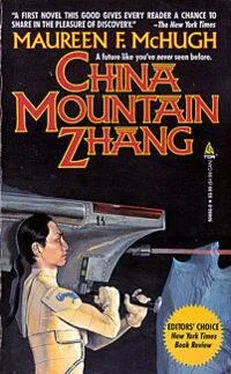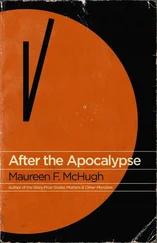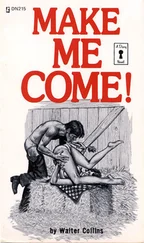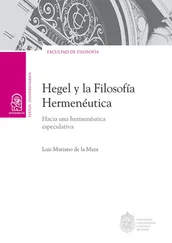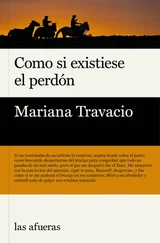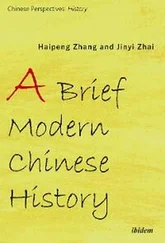"It's 47 seconds in the system," I say.
"Well, that's something. It's a little like calligraphy," she says.
"Tutorial art," I suggest.
"A little flat," she says. "Too western. Maybe that's the problem, a western mindset."
I do not know if she is joking or not. "Right," I say.
I review jobs, but I am slow because I keep losing concentration. I keep thinking about Chinese calligraphy. Calligraphy emphasizes line, the variation of width and blackness in the stroke, flow. There's a lot of talk about the rhythm of the character. For example, when I write the English word 'talk' I don't cross the 't' until I finish the 'k'. A character is supposed to be a kind of circular movement. I tend, when I finish the 'k' in talk to drag my pen so there's a faint line from the 'k' to the crossbar of the 't'. In calligraphy the faint line is supposed to be implied. It can actually be there, a brush of ink, but whether it is or isn't, there must be a sense of the artist's brush moving in that connected, circular pattern.
I keep thinking about all of this when I am supposed to be checking jobs. Thinking about how calligraphy might be connected with imagining buildings.
Frankly, I don't see any connection at all.
On my fourth Saturday in Wuxi, I go to dinner at Woo Eubong's flat. It's a pretty place, less perfect than the apartment I'm staying in, but more like a home. Woo Eubong has two daughters-official policy is one child, but it's not really so difficult to get permission for a second.
I have spent a few hours in Wuxi, shopping, and finally paid a small fortune for a Wuxi teapot. Made of brown clay, the spout and handle are very realistic looking branches. Mine was made in the second half of the twentieth century, the really valuable ones were made before the Liberation, in feudal China. But it's still an antique. It's tiny and comes with four cups that look as if they actually only hold about a quarter of a cup each. The shopkeeper explains that the teapots used to be stuffed with leaves and the tea brewed was very strong. The four little cups sat in a tray and were filled by being splashed first with tea and then with hot water. The tea, he says, never had a chance to get cold. He wraps them, folding the paper so that he doesn't have to use any adhesive.
It's tiny, if she doesn't like it, at least I made the gesture. And she can put it in a drawer, I'll never know.
I take the bus to the complex where she lives, way out on the edge of town. The buildings are three and four stories tall, and give the impression of careless irregularity, of flow. Tiled roofs jut, balconies look out, roofs are finished as gardens with round moon gates. I look with a more practiced eye. This building was designed by an organic engineer or architect. Woo Eubong?
The gate checks me, opens and I follow my directions back three buildings and then left to the second walkway. There is an archway, as the directions promise, and next to the archway, a child's three wheel gleams as red as the roof tiles.
I climb a ramp, there is a lift, and ask for the second floor. It is so clean, so polished. They must pay to keep it so clean. Woo Eubong's door is blue and before I knock it is opened by a child-maybe four years old? She is sucking on a purple ice lolly and does not speak, only looks up at me.
"Hello," I say.
She regards me seriously and then runs back into the flat, leaving me at the door. She is wearing blue coveralls and yellow shoes.
An older girl with long pigtails peers around the corner. "Mama!" she hollers, "he's here!" She smiles at me, showing missing teeth, and disappears.
A man comes around the corner, tall and fair-skinned. "Engineer Zhang?" he says, "I'm Zhang Chunqing, Eubong's husband. Come in."
The flat smells of food cooking, and from somewhere I hear Woo Eubong saying, "I know he's here, I'll be right out. Go talk to him."
Zhang Chunqing calls, "Girls? Come out here?" He takes my jacket, the girls skid around the corner on the hardwood floor like puppies. "These two worthless daughters are Xiu-ping and Xiu-lin."
The girls giggle madly and take back off for the kitchen.
He sighs, "You will find we are not a very formal household, I'm afraid."
I find it is very hard not to feel at home here. Woo Eubong comes in bringing finger dumplings and sliced vegetables and Zhang Chunqing gets beer. The girls want to watch the vid and are told they can't do it in the front room. They disappear into their bedroom but reappear every fifteen minutes or so to get some snacks and regard me owlishly before breaking into giggles and dashing off to the bedroom. Zhang Chunqing tells me that the older girl, Xiu-ping, is going to a special school where she learns piano and Japanese and we fall into a discussion of the best way to learn a language. Woo Eubong quizzes me on how I learned Mandarin. Chunqing is a biology teacher at a middle school for students who are preparing for University work.
The room is pretty, but there is a pair of small red shoes by the doors that lead to the balcony. A stack of papers sits on one end of a shelf that displays pottery (perhaps my teapot was a good choice.) It is not as beautiful as my apartment, but it is more comfortable. And the beer works on me and I begin to relax a little. It is hard to completely relax, I am always watching my behavior, trying to be Chinese. There is a huaqiao saying that when you step foot in China you become Chinese. Maybe it is true if you are first generation, maybe it would be true for San Xiang's child, Foreman Qian's grandchild, but it is not true for me. Maybe I am more my mother's son than I ever knew.
But I like Woo Eubong a great deal and her husband is easy to talk to. Dinner is delightful, thousand year old eggs, sweet and sour pork and spiced cabbage with anise, a chicken roasted with it's head tucked under it's wing, fresh sliced tomatoes with a dusting of white sugar, candied yams. The girls have to be told to pick up their rice bowls when they eat, they want to leave the bowls on the table, stick chopsticks in them and carefully try to get the rice in their mouth with spilling anything. Woo Eubong is a little embarrassed, but I am relieved to be treated to real life. Everything at Wuxi has seemed to consist of glossy surfaces, effortless perfection, with me as the only flawed example of the other life I knew. It is nice to see that children are still children.
After dinner we talk some more, and I find myself admitting that I am frustrated.
"You try too hard," Woo Eubong says. "You have this feeling that what you are trying to do is very difficult, but it isn't. Once you find a way in, it will not be difficult at all."
A way in. A way in where?
Monday at Wuxi Engineering Technologies. I spend the morning reviewing jobs. I am starting to pick up speed, this, my third week. I eat lunch with Woo Eubong in the cadres' dining room (five pink prawns on the side of my plate like five shingles, slices of green kiwi fruit from Australia, cooked cucumber and tomato.)
"Today," she says, "you're not going to scribble. Today you are going to design doors."
"Why is that?" I ask.
"I am trying something different."
Ah. Okay. So that afternoon I sit and design doors. Imagine a door, the system draws it. A wooden door. A metal door. A garage door. A great Chinese double gate, each side set with eighty-one brass studs. A moon gate, the opening a round zero. Then back to wooden doors. Without windows, with insets, with carving, with a window, with square panes, with panes like a fan. I take a stack to Woo Eubong. She nods.
"Keep working," she says.
"Doors?" I say.
"Doors," she says.
So I do doors with transoms. Doors with security systems. Doors that fold, that retract, that slide. Doors within doors. When I run out I do doors of varying widths. Doors of varying finishes. A stone door. I start to indicate a little bit of entryway but Woo Eubong, leaning over my shoulder says, "No, just the doors."
Читать дальше
